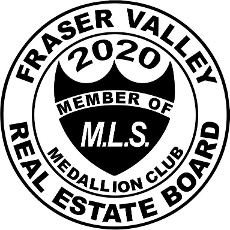RENOVATING YOUR HOME - FREQUENTLY ASKED QUESTIONS
There are different reasons for wanting to renovate. It may be a lifestyle choice, a change in family circumstances and the need for more practical renovations, or quite simply the desire for a change. Regardless, planning a renovation is key to protecting your investment.
Q: What are some of the best ways to improve the value of your home?
Upgraded or renovated kitchens and bathrooms, as well as flooring upgrades, windows and doors can provide great appeal; however; it is important not to “under-improve” or “over-improve" a home. Homeowners must be mindful of the expectations of purchasers in their market.
Q: What are some of the small renovations most recommended to homeowners wanting to sell their home?
Painting goes a long way to adding freshness and redefining the style of a home. Trim, interior doors (including resurfaced kitchen cabinets), door handles, bathroom fixtures, lighting fixtures don't necessarily require large investments but can easily modernize a home.
Q: How much money should people expect to receive on their renovation investment when they sell their home?
The return on investment depends on the contributory value, or value add, of the renovation and tends to vary from market to market. The contribution to value is determined by the actions of buyers and sellers which is something that must be analyzed and estimated in the local market. For example, investing $30,000 renovating a kitchen may be an over-improvement for a home in a particular market, which means that the return on the renovation investment would likely be partially recognized by homebuyers. If the value of your house exceeds the average market value in your neighbourhood, your renovations will not yield much return. But if your house value is below the average, you can recover a larger part of the renovation costs.
Q: What are homebuyers drawn to when considering a purchase?
First and foremost the location of the home in relation to the workplace, schools, relatives, friends, public transit; convenience and accessibility to shopping centres, restaurants, recreation centres; suitability to the homebuyers’ lifestyle (e.g. rural, urban, waterfront); and the immediate and surrounding neighbourhoods.
Depending on how long a homebuyer is planning on owning the property, the anticipated resale value of the home can also be a great consideration.
Other key features include the physical characteristics of the home such as design, style, size, quality of the finishes and workmanship, potential for expansion and landscaping.
Nowadays, homebuyers are more and more aware of the financial and health benefits of an energy efficient home. Again, the contributory value of such improvement is influenced by local markets and more recently, as a result of federal and provincial financial incentives offered to homeowners. Homeowers undertaking energy efficient assessments and improvements should ensure that the appraiser is aware of those upgrades so they can be properly considered in the valuation process.
Q: In what situation would a renovation be a detriment to a potential buyer down the road?
Unique designs or improvements that are uncommon for a particular market may impact the resalability of a home. This is where the expert advice of a real property appraiser can provide an objective perspective on the marketability of the property.
Q: Do some homebuyers wish the previous owner didn’t renovate a home?
A home is an expression of the homeowner's personality and lifestyle. What appeals to one homeowner may not necessarily appeal to another. A homebuyer’s attraction to a property goes beyond the cosmetic appeal - it's about the location, the interior/exterior design of the home, the many features and finishes, and so much more.
As experts in real estate valuation, Appraisers have the knowledge and the expertise to advise homeowners, buyers and sellers on the contributory value of proposed renovations.
For more information, visit the Appraisal Institute of Canada www.aicanada.ca website







